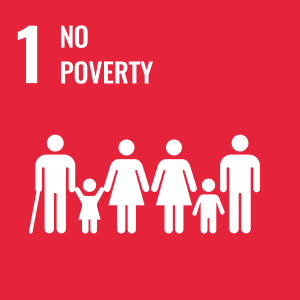The impact of microfinance programs on monetary poverty reduction: Evidence from Sudan

Purpose: The purpose of this paper is to examine the impact of microfinance programs sponsored by Sudanese microfinance institutions (SMFIs) on monetary poverty reduction in Sudan where poverty is widely spread. Design/methodology/approach: The study adopted the control group approach, where income and expenditure are taken as welfare indicators. The updated World Bank’s international poverty line of 1.90 per person per day was adopted to separate the poor from non-poor. The data were collected by the means of a questionnaire distributed to a random sample of beneficiaries in the institution under study. The study adapted the Foster, Greer and Thorbecke (FGT) model to evaluate the role of microfinance programs in poverty reduction. Furthermore, to gain more insight into the impact of the program, a preliminary analysis was conducted using the independent-samples t-test to examine the difference in the welfare indicators for the sample of the control group and treatment group as well as that of the small loan group and micro-loan group. Findings: The findings show that the microfinance program provided by SMFIs has reduced the monetary poverty among the participants. The results also reveal that beneficiaries who had received a larger volume of loan were noted lesser poverty than those who had received very small loan size. Moreover, the results demonstrate that poverty indices based on expenditure as a welfare indicator are far lower than those based on income for both groups. Originality/value: This study contributes to the available literature by filling the gaps through including income and expenditure as monetary variables, which included separately in previous studies adopted the FGT model in the area of microfinance, in addition to exploring the role of loan size in the effect of microfinance on poverty reduction.

Source Title: World Journal of Entrepreneurship, Management and Sustainable Development
DOI: 10.1108/WJEMSD-05-2019-0036
Document Type: Article
Elsafi M.H., Ahmed E.M., Ramanathan S., 2020
he MMU Digital Futures Research Hub is a multi-disciplinary platform for research on the digitalization of our society. The goal is to foster innovative, cutting-edge multi-disciplinary research, and to provide outstanding training for talented young scholars and students through 8 research institutes.
The hub is a community and industry centric entity, with 20 professor chairs that brings together universities, governmental and industrial research organizations, as well as state and federal governments.

